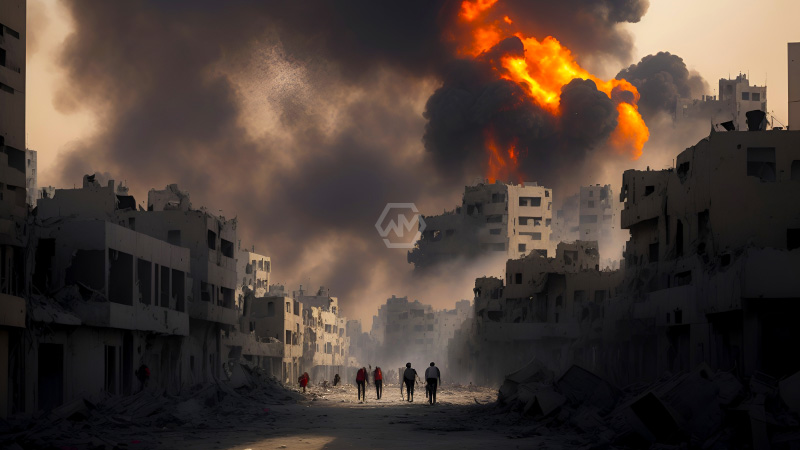- An Israeli airstrike on Beirut’s southern suburb killed four people, including a Hezbollah operative, and injured seven others.
- Lebanon’s leadership condemned the attack as a violation of the fragile ceasefire, while Israel claimed it targeted an immediate threat.
- In Gaza, Israel issued forced evacuation orders for parts of northern Gaza, intensifying the humanitarian crisis.
Israel’s latest airstrike on Beirut marks a serious escalation in its ongoing tensions with Hezbollah. The attack, which targeted Hassan Ali Mahmoud Bdeir, was justified by Israel as a preemptive move against a planned terror attack.
Meanwhile, the crisis in Gaza worsens as Israeli forces ordered mass evacuations from northern areas, warning of a large-scale raid. The United Nations has criticized these evacuations, arguing that they fail to provide civilians with adequate protection or safe zones.
Rising Conflict: Israel Strikes Beirut as Gaza Tensions Escalate
Israel’s decision to strike Beirut’s southern suburb, Dahieh, has reignited concerns about a broader regional conflict. Lebanese leaders strongly condemned the attack, calling it a direct provocation and a breach of sovereignty. Hezbollah, which has been engaged in periodic skirmishes with Israel, has yet to issue a formal response. However, the airstrike has raised fears of retaliation, potentially drawing Lebanon further into hostilities.
This escalation comes as Israel continues military operations in Gaza, where it has issued large-scale evacuation orders. The directive affects thousands of civilians in areas such as Beit Hanoun and Beit Lahiya, forcing many to flee to already overcrowded shelters. Critics argue that these evacuations, framed as security measures, are causing further displacement and suffering among Palestinian civilians.
International responses have been mixed, with some governments supporting Israel’s right to defend itself, while others call for an immediate ceasefire and de-escalation. The UN has repeatedly warned that continued military actions could lead to a deepening humanitarian crisis, especially in Gaza, where infrastructure and resources are severely strained.
The broader context of the conflict ties back to the October 7 Hamas attacks, which triggered intense Israeli military operations in Gaza and cross-border confrontations with Hezbollah. Despite ceasefire agreements, both regions remain battlegrounds, highlighting the fragile nature of any diplomatic efforts to end the violence.
The latest Israeli airstrike on Beirut, coupled with intensified military actions in Gaza, underscores the volatility of the region. With ongoing ceasefire violations and growing humanitarian concerns, the path to de-escalation appears increasingly uncertain.
“War does not determine who is right—only who is left.” – Bertrand Russell



